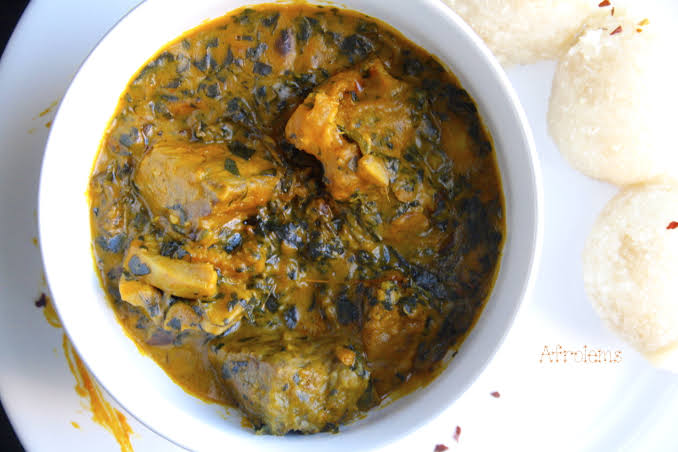
Bitterleaf soup, a beloved Nigerian delicacy, holds a unique place in the hearts of many who enjoy it. For those unfamiliar with the dish, the first encounter with bitterleaf soup can be quite challenging due to its distinct flavor. However, over time, many come to appreciate the acquired taste of this rich and nutritious soup. Rooted in the cultural history of Nigeria’s eastern regions, bitterleaf soup is not only delicious but also rich in health benefits, making it a dish worth exploring for those seeking to experience the full range of Nigerian cuisine.
The Ingredients Behind Bitterleaf Soup
The taste of bitterleaf soup comes from the key ingredient itself: bitter leaves. These leaves, known for their slightly bitter and earthy flavor, are balanced with a variety of other ingredients to create a savory and complex dish. Alongside bitter leaves, common components of this soup include:
- Palm oil – adds richness and a deep red color to the broth
- Crayfish – for a nutty and savory flavor
- Meat – typically a mixture of goat, beef, or chicken for added heartiness
- Stockfish and dry fish – to infuse the soup with a bold, smoky taste
- Pepper and spices – to introduce heat and additional flavor depth
Each of these ingredients plays a role in balancing the bitterness of the leaves, ultimately contributing to the unique and layered flavor profile of the soup.
Cooking Bitterleaf Soup: Traditional Methods
Traditionally, the soup is prepared through a lengthy and careful process. The bitter leaves must first be washed thoroughly to reduce their bitterness before being cooked. This step can take time and requires experience, as under-washing can leave the soup overly bitter, while over-washing removes much of the desired flavor. After preparing the leaves, they are combined with the other ingredients to slowly simmer until the flavors meld together.
Many Nigerian households continue to use traditional cooking methods when preparing bitterleaf soup, as these techniques are passed down through generations. The process may vary slightly from one region to another, but the essence of the dish remains consistent.
Modern Twists on an Acquired Taste
While many still prepare bitterleaf soup using traditional techniques, modern Nigerian kitchens have introduced new methods to streamline the cooking process. For instance, some cooks now use pressure cookers to reduce the time it takes to soften the meat and fish. Others may purchase pre-washed bitter leaves, which saves time and ensures a more consistent taste.
Additionally, for those who find the flavor of bitterleaf soup too strong, milder versions of the soup are gaining popularity. By blending the leaves with other green vegetables such as spinach or ugu (fluted pumpkin leaves), cooks can offer a more balanced flavor that is easier for newcomers to enjoy.
The Health Benefits of Bitterleaf Soup
Beyond its acquired taste, bitterleaf soup is also renowned for its health benefits. The bitter leaves themselves are rich in nutrients, including vitamins A, C, and E, which contribute to improved immune function, skin health, and overall vitality. The leaves are also believed to help with digestion and detoxification.
Moreover, the use of fresh ingredients such as meats, fish, and palm oil ensures that the soup is not only flavorful but also packed with protein and healthy fats. As a result, bitterleaf soup is both a comforting and nutritious meal that is highly valued in Nigerian households.
A Dish Worth Exploring
Bitterleaf soup may be an acquired taste, but it is a dish that rewards those willing to explore its complexities. The rich blend of ingredients, combined with the nutritional benefits, makes it a standout dish in Nigerian cuisine. For those unfamiliar with the dish, trying it for the first time may be a challenge, but the flavors develop and grow on you with each bite. Whether prepared traditionally or with modern twists, bitterleaf soup is a culinary experience that is deeply rooted in Nigerian culture and worth adding to any food enthusiast’s list.
Discover more from Amebo Media
Subscribe now to keep reading and get access to the full archive.




